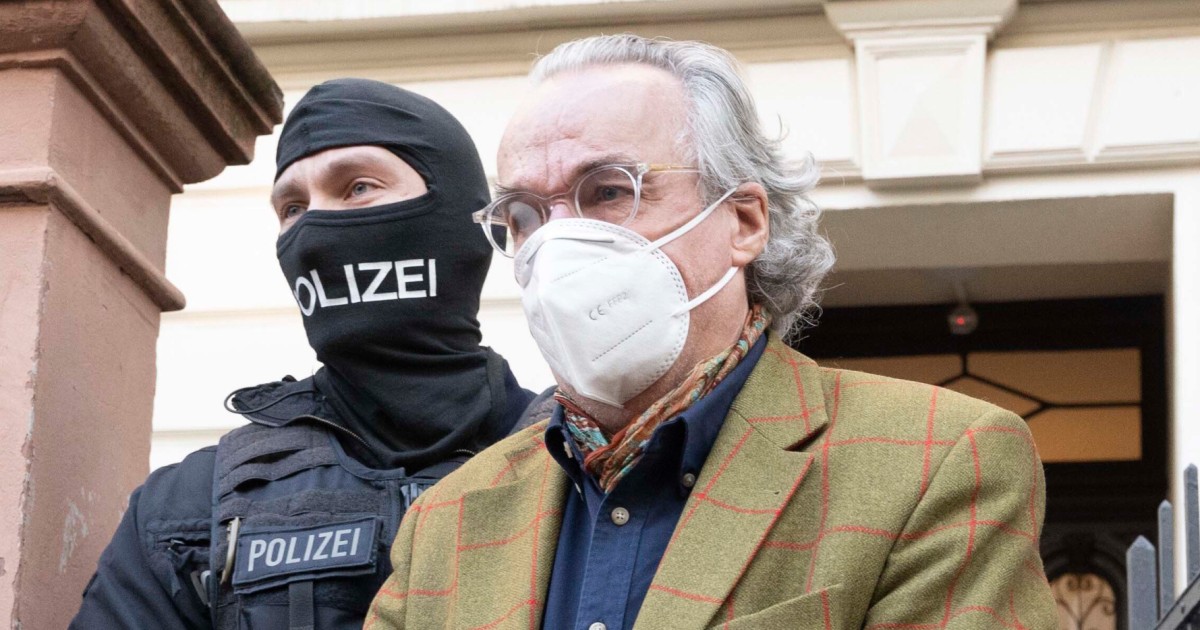What do they believe?
Reichsbürger supporters reject the very idea that the modern German state exists. The true Germany, they say, is the constitutional monarchy that reigned before the modern republic was established. Others within the movement argue Germany is under military occupation.
Like the Sovereign Citizen movements in the United States, they argue that modern laws do not apply to them.
“They do not respect the constitution of the state, they think it’s illegitimate. They don’t have [licence] plates, they don’t pay taxes — they think the last legitimate state was the Kaiserreich that ended in 1918,” said Peter Neumann, a professor of security studies at King’s College, London.
In 2021, a civil servant and Reichsbürger supporter lost his job after he named his birth state as “Kingdom of Bavaria” when applying for a passport, citing a 1913 law, according to a government report at the time, Reuters reported.
However, the movement has become externally politicized and shares with the QAnon conspiracy theory the idea that Germany is held captive by the “deep state.”
And like Q followers, Reichsbürger members believe Germany will soon be liberated from tyranny — not by Donald Trump, but by an alliance including the governments and intelligence services of the United States and Russia.
“The Reich Citizens’ Movement has grown parallel to the QAnon movement in Germany during the pandemic, they share many stories and are very closely intertwined.
Germany has the largest non-English speaking QAnon community in the world,” Dittricht said.
What were they planning?
German prosecutors said the group had detailed plans for how to seize power. These included the formation of “homeland security” groups to take and maintain control of the country, weapons training, IT systems and an entire shadow cabinet of leaders who were to take control in the event of a successful coup.
As prosecutors put it in a statement Wednesday, “Members of a ‘military arm’ are to carry out this forcible elimination of the democratic constitutional state.”
The Federal German Republic would then cease to exist, rewriting some 100 years of history.
“There are not a lot of guns in private hands [in Germany], but Reichsbürgers were actively arming themselves — they got licenses for sports shooting,” Neumann said.
“And there are former armed forces and police officers who know how to use guns. In that sense they are a dangerous movement that has gained support in the last two years.”
How close were they to acting?
German authorities have not said whether the group was ever in a position to launch a coup, nor whether such an attempt was ever likely to succeed.
But the group and its plans were considered serious enough to justify the largest and possibly most expensive counterterror operation in the country’s history, which strongly suggests that the risk of an armed confrontation on some scale was expected.
A taste of what could happen was seen in 2020, when almost 40,000 protesters marched in Berlin to show their anger at Covid-19 measures. Around 100 to 200 of them attempted to storm the Bundestag, the German Parliament.
They were repelled, some 300 were arrested, but the size and potential power of the movement was beyond doubt.
So what’s next?
“It’s a success for the security agencies in that they have stopped this. But I don’t think it’s the last plot we will see like this,” Neumann said. “I would be very surprised if there weren’t any other networks that were uncovered.”
What role did Covid-19 play?
The pandemic was a catalyst for far-right groups across Europe. Previously obscure activists found a wide audience through social media platforms such as Telegram and grew a sympathetic audience.
People who were worried about the state’s overreach soon found far-right voices who offered an explanation for it — which happened to include conspiracy theories often based on the role of shadowy globalists or deep-state actors.
“These people have always been there but they were extremely empowered by the anti-Covid measures movement. They were radicalized because it allowed them to say they had the right to take action, including armed action,” said Neumann.
“It allowed them to say, ‘This has become so bad, we need to act.’ The pandemic allowed them to broaden their movement. Before, they were so crazy they were sidelined.”
Andy Eckardt and Reuters contributed.
Share your story or advertise with us: Whatsapp: +2347068606071 Email: info@newspotng.com














